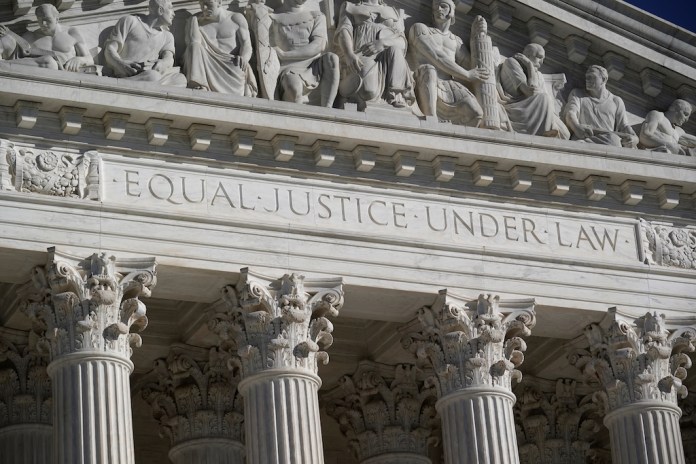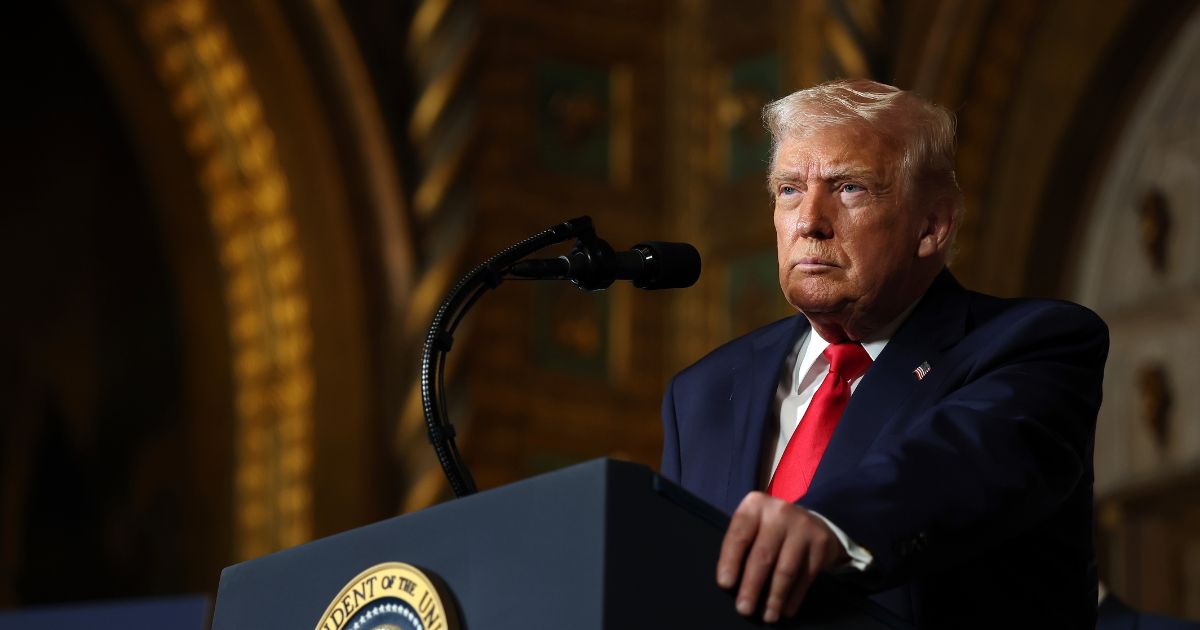Chevron decision set stage for Trump 2025 agenda – Washington Examiner
The article discusses the implications of the Supreme Court’s decision to overturn the Chevron doctrine, which had historically allowed federal agencies broad interpretive powers over ambiguous statutes. This ruling, made in the case of *Loper Bright Enterprises v. Raimondo*, is seen as a pivotal moment that will affect President-elect Donald Trump’s policy agenda for 2025. The decision aligns with Trump’s deregulatory vision but also poses challenges by requiring closer collaboration with Congress for legislative clarity on policy initiatives.
Supporters of Trump’s incoming administration argue that the demise of the Chevron doctrine will not hinder conservative policies, as regulations backed by existing statutes will remain valid. Carrie Severino, president of a conservative judicial group, emphasized that the ruling reinforces regulatory boundaries and aligns with conservative principles of restraint.
However, critics warn that the ruling could favor corporate interests at the expense of public welfare, with some viewing it as a step towards limiting the government’s regulatory power in favor of businesses. While Trump’s agenda includes reversing actions from the Biden administration, the new legal landscape necessitates a shift from unilateral executive actions to legislative backing for regulatory changes. The article notes that the implications of the *Loper Bright* decision are already being felt in ongoing legal challenges against Biden-era policies.
Chevron decision set stage for Trump 2025 agenda
The Supreme Court’s decision to overturn the Chevron doctrine, and thereby curbing federal agencies’ ability to set rules, will shape President-elect Donald Trump’s approach to his 2025 policy agenda.
With its decision in Loper Bright Enterprises v. Raimondo earlier this year, the Supreme Court ended a precedent that had been on the books since 1984 that allowed federal agencies broad interpretive freedom over ambiguous statutes, known as the Chevron doctrine.
On the one hand, the new limitation on agency power aligns with Trump’s deregulatory vision.
But on the other, it could pose obstacles to his agenda by requiring his administration to work within narrower legal parameters.
However, some supporters of the incoming administration say the overturning of Chevron won’t have negative consequences for Trump so long as his policies are backed by statutes on the books.
Carrie Severino, president of the conservative judicial advocacy group JCN and a former clerk to Justice Clarence Thomas, told the Washington Examiner that “Getting rid of Chevron doesn’t hurt a conservative administration.”
“The administrative state is, in fact, limited to what the federal law gives them authority to do…we don’t want to go beyond that in the first place,” Severino said.
Severino said that that the ruling reestablishes regulatory boundaries by removing any tool for agencies to go beyond the statutory text—an approach she believes is core to conservative governance.
For Trump, however, the Loper Bright decision could still present complications for second-term goals, such as immigration reform, energy policy, and deregulation. Trump relied on executive orders in his first term, and was largely shielded by Chevron. Now, he will now face heightened judicial scrutiny, forcing agencies to work more closely with Congress to pass clear legislative mandates.
Critics of undoing Chevron suggest it gives corporate interests an advantage over the broader public. Democratic Sen. Richard Blumenthal (CT) described it as prioritizing “corporate greed over public welfare.”
Still, several business groups and advocates for limited government viewed the ruling as a victory for accountability. The National Federation of Independent Business welcomed the decision as a way to level the playing field between small businesses and federal agencies.
Much of what Trump’s agenda involves reversing Biden administration actions that conservatives view as unlawful, such as its forgiveness of student loans. So in undoing those measures, the Trump administration would be on firmer ground with respect to Loper Bright, they argue.
Severino said the new precedent aligns with conservative principles of restraint and transparency, ensuring agencies operate strictly within the authority Congress grants.
“The only tool taken out of the toolbox for regulators is regulating outside of the text of the statute,” Severino said, arguing there is still “probably too much regulatory authority in the hands of the administrative state.”
The end of Chevron earlier this year signals that Trump’s 2025 agenda will require a strategic shift: regulatory changes will likely need legislative backing rather than unilateral agency action.
This was evident through a growing number of courts that clung to Loper Bright after it was decided in cases currently involving the Biden administration’s contested policies.
Since the Loper Bright decision, several Biden administration policies have faced legal challenges as courts increasingly apply the ruling to limit federal agency authority, according to an analysis by the nonprofit outlet ProPublica. A Department of Labor rule expanding overtime pay eligibility was blocked, with a Texas judge citing Loper Bright to argue that the agency exceeded its powers.
Similarly, at least three federal judges invoked Loper Bright to halt an HHS rule prohibiting discrimination in health care based on gender identity, contending that the Affordable Care Act does not explicitly include gender identity under “sex” discrimination, according to a July analysis from the law firm Sidley.
Transportation regulations requiring airlines to disclose fees upfront also met resistance as the U.S. Court of Appeals for the 5th Circuit held that airlines “made a strong showing that the Rule exceeds the agency’s authority” and found the Department of Transportation had overstepped its statutory bounds, just one of several roadblocks the Biden administration’s agencies have encountered in federal courts since the ruling.
While the Supreme Court’s decision limits presidential administrations from pushing through any of its pet policies without explicit backing from lawmakers, it reinforces the conservative objective of reining in the federal bureaucracy, which will push Trump’s administration to advance policies through collaboration with Congress rather than relying on executive agencies alone.
" Conservative News Daily does not always share or support the views and opinions expressed here; they are just those of the writer."




